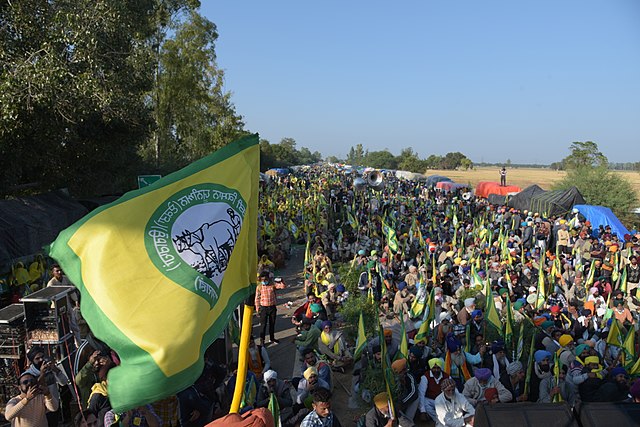On February 14, India’s capital, New Delhi remained under police barricade to bar protesting farmers demanding guaranteed crop prices.
Though the protesters were still 200 km from Delhi by noon India time, the authorities cordoned off three strategic entryways into the capital.
The main demand by the protesting farmers is for the government to declare clear minimum support prices MSP). MSP is the base price for crops at wholesale mandis or fresh produce markets. The national administration controls mandis in the vast agricultural nation, and often imposes regulatory prices to balance demand and supply.
The current protests emerge from the northern state of Indian Punjab, a major cereal belt of the nation. Punjab’s farmers grow rice in the kharif season between summer and autumn, and wheat in the rabi season from winter through spring. Owing to increasing water pressure, the government of India has been introducing dwarf varieties of wheat here.
Local farmers, however, are not just after wheat diversification but amicable prices of all grains. Wheat enjoys 100% MSP guarantee through subsidies due to its perennial importance but maize attracts a changing annual MSP.
Crops with no clear MSP rules change prices drastically when they reach government mandis, unlike those with full MSP. For instance in 2020, the state had procured maize at a price of Rs 1850 ($22.27) per quintal but registered mandi traders bought it at Rs.800 ($9.63). The wholesale buyers cited surplus moisture in the grain as the cause for price demotion.
The protests by farmers in India are occurring in the run up to the country’s elections, hence drawing political connotations.
Be it as it may, the participants are demanding MSP guarantee and a Rs. 10,000 ($120.40) monthly pension for farmers aged 60 years.
To push a beneficial governmental action, 200 farmers’ unions from Punjab are involved in the ‘dilli chalo.’ This is a Hindi phrase meaning ‘On to Delhi,’ a city now under a 1-month barricade.
The protesters had temporarily halted their march on February 13, but lack of a breakthrough saw their return on the 14th.
India’s bulk-buying method of kharif and rabi crops leads to sudden surges in supplies, in consequence of which are marginal prices. This forces the government not to guarantee all MSP, which makes farmers feel betrayed.
The reverse often happens in times of scarcity, where very high minimum export prices set in to prevent hoarding.
